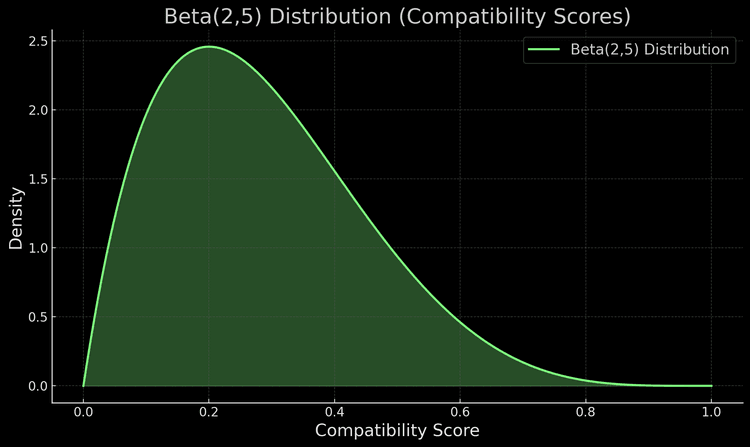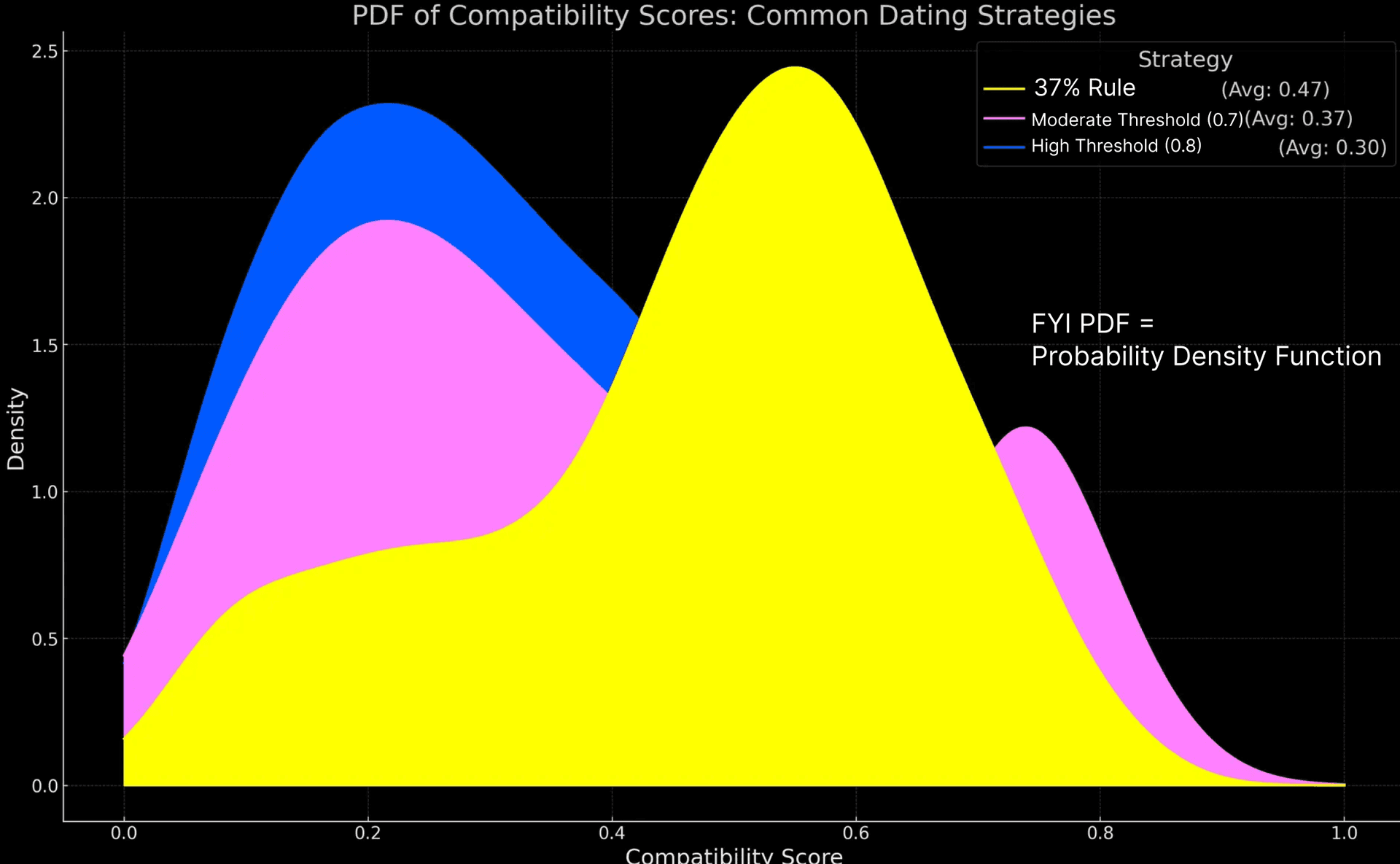When to Stop Searching
Last night, a friend asked if they should accept a decent job offer or keep looking: instant Vietnam-style flashbacks to a Shanghai plane ride: five hours of crying-baby service, and my only distraction was Algorithms to Live By. One chapter stuck with me: the explore-exploit dilemma. When do you stop searching for better options and commit to the best you’ve found? The same heuristics applies to choosing a house, a career-and yes, even finding a partner.
Dating as a Decision Problem
If you’re so inclined to reduce one of the most beautiful things in life-love-to statistics, you can think of dating as solving the Secretary Problem:
- Spend about the first 37% of your opportunities just observing.
- Identify the best candidate from this initial sample as your standard.
- After that, commit to the first person who surpasses that standard.
It sounds mechanical, but it captures the logic of learning enough to know what “good” looks like before you decide.
Testing the Idea
To see how this works in practice, consider a simulation with 20 potential matches. Their compatibility scores come from a Beta(2,5) distribution, meaning most are average, and true standouts are rare. We test three approaches:
- 37% Rule: The classic method from the Secretary Problem.
- Moderate Threshold (0.7): Commit to the first clearly above-average candidate.
- High Threshold (0.8): Hold out for someone exceptional, even if it’s risky.

By running simulations, we see each strategy’s trade-offs. The data shows when patience pays off and when it just leaves you empty-handed. Instead of guessing, you can ground your decision in a bit of math.

Why 37%?
The proof can be found here.
The Practical
In retrospect, I should've used finding a house as an example. But alas, some pratical heuristics from this short thought experiment is:
- Start dating early. I assume you're more likely to meet different personality types, values, and perspectives to give you a clearer sense of what truly matters (oops for me).
- Don't settle too soon (reserach has found people tend to settle too early).
- Prioritize learning and reassess regularly (early on) (ik, but once again we're just looking at game theory optimals here).
- Give people a change. Uncertainity adds value.
- Meet more people!
That being said, this is just a drop in the decision making ocean. As Charlie Munger once said: "How to find a good spouse? The best single way is to deserve a good spouse...To get what you want, you have to deserve what you want." Simply getting your physical and mental health as well as your job and finances sorted out will get you further than anything here.